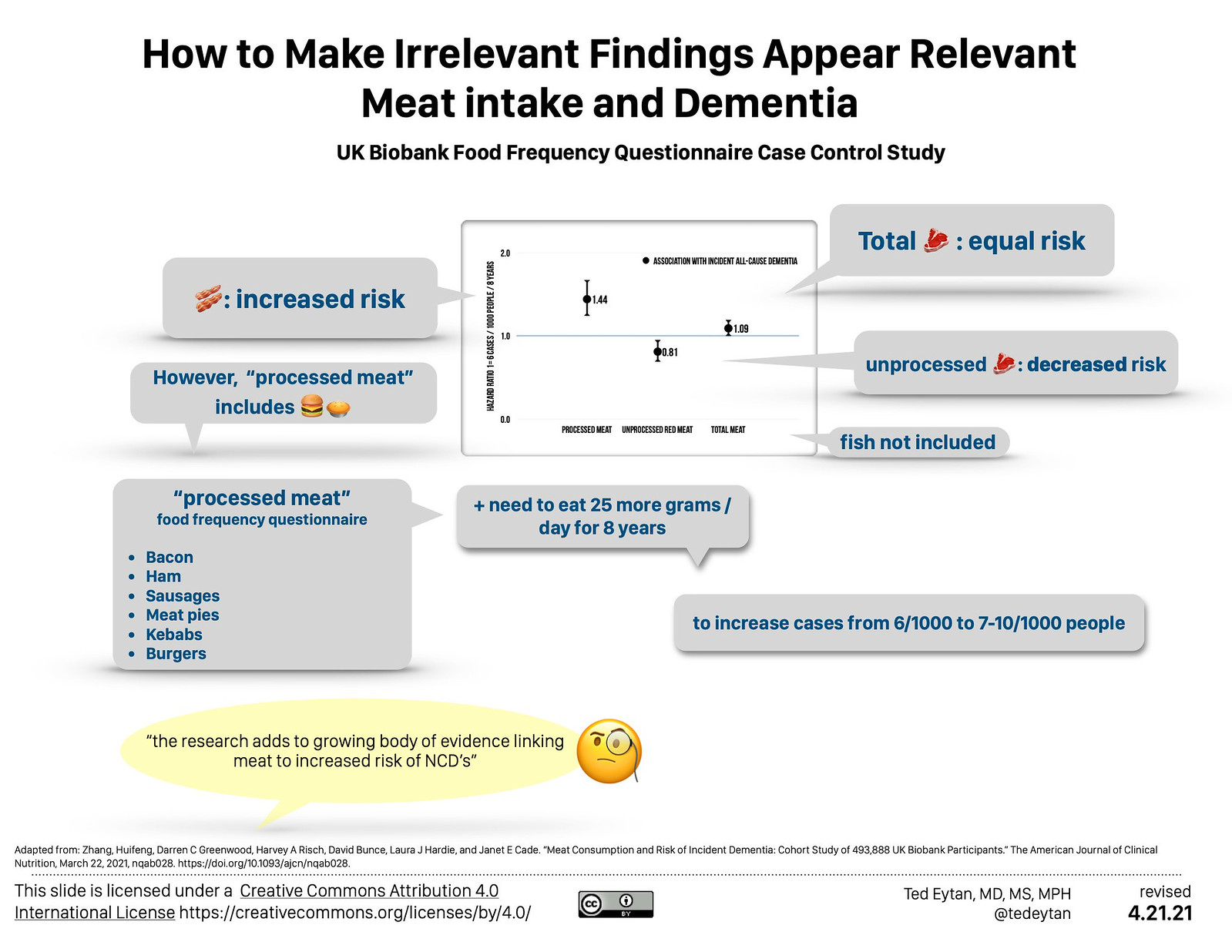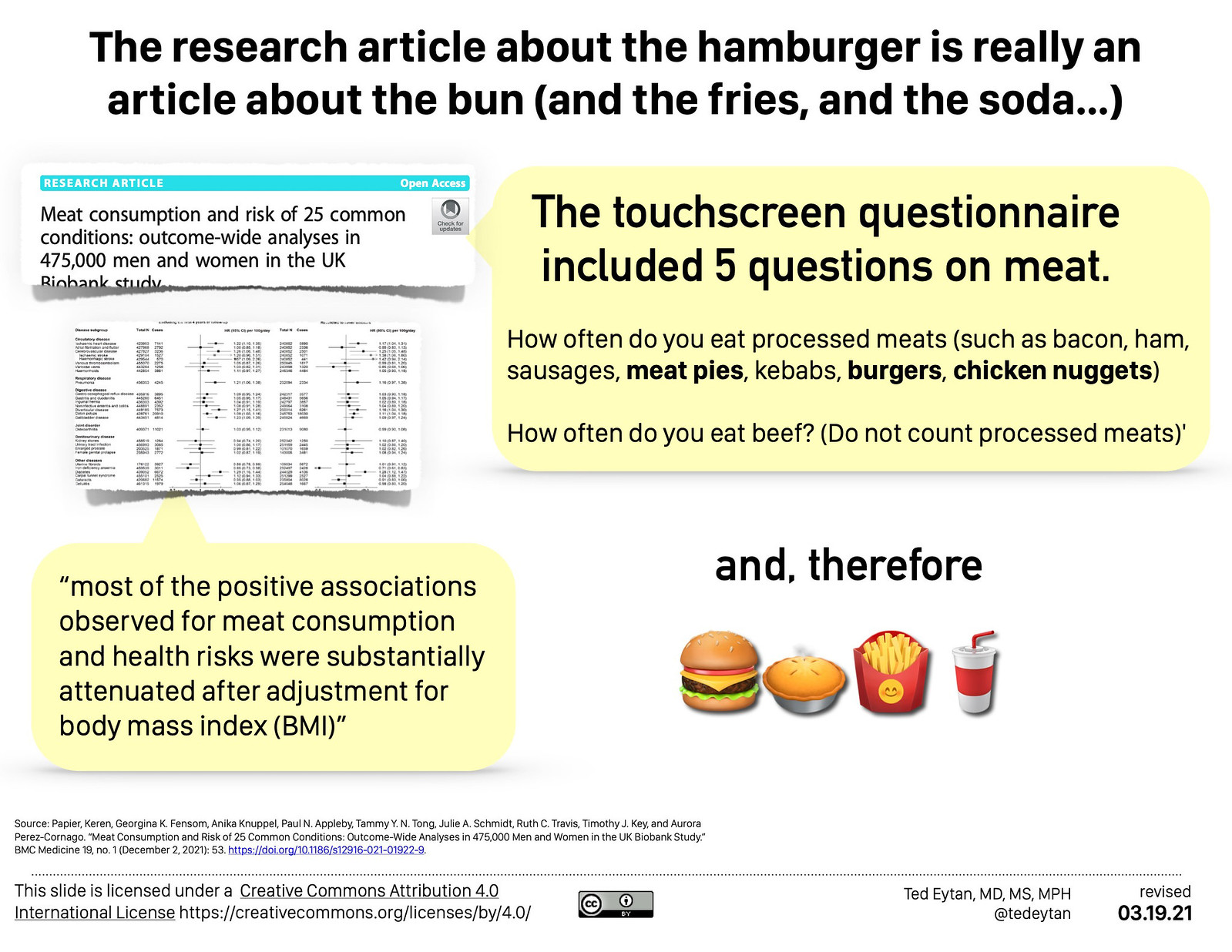Image: 2018.05 Low Carb and Low Carbon – Ted Eytan MD-1001 1148 | Flickr
This is (yet) another study, also using UK Biobank (UK_Biobank) data, that attempts to show a negative (unhealthy) association between meat intake and health.
Unfortunately, it is beset with many of the same issues I covered previously in another UK Biobank paper attempting to show a negative association. Here’s a refresher:
Are the Food Frequency Questionnaires and Dietary Recall fit for purpose?
As with previous reviews I’ve done, I took the time to go look at the food frequency questionnaires as well as the added 24-hour dietary recall utilized in this study.
UK Biobank has done a nice job cataloguing the actual questions and screen captures of the electronic questionnaires. They are protected by copyright so I won’t show them here. Here are the links to go view them yourself.
- UKB : Category 100052 – “data from the touchscreen questionnaire on the reported frequency of intake of a range of common food and drink items.”
- UKB : Resource 118240 – “This document describes the rationale, development and usage of the 24-hour dietary recall questionnaire as deployed in the latter Biobank assessment centres and subsequently via email invitation and web interface.”
If you take a look at the questions about beef, such as this screen, you can tell that there is no way to accurately separate meat intake from potentially unhealthy food items that go along with beef intake. It’s important to remember the time frame of the data acquisition as well – close to 10 years ago, when there was unlikely to be a healthy low-carbohydrate / beef eating cohort of people to study.
Is the research question fit for purpose?
My assessment is that it is not. Reading the introduction (and yes, I read the whole paper) shows that a whole body of inquiry into the relationship between diet and dementia has been ignored, specifically the impact of insulin resistance. I wrote a review about this previously: Just Read: Alzheimer’s Disease Is Type 3 Diabetes—Evidence Reviewed. Instead, the authors focused on meat consumption, which is tangential / not relevant to a significant amount of work in this space.
There’s nothing wrong with asking a tangential research question. However, when the findings of the study don’t support the line of inquiry, it’s important to point this out in the conclusion, which the authors have not done. In fact, they have done the opposite, proposing that their inquiry is relevant even though their data doesn’t support this:
Overall, the research adds to the growing body of evidence linking meat, especially processed meat consumption, to increased risk of a range of noncommunicable diseases.
Zhang, Huifeng, Darren C Greenwood, Harvey A Risch, David Bunce, Laura J Hardie, and Janet E Cade. “Meat Consumption and Risk of Incident Dementia: Cohort Study of 493,888 UK Biobank Participants.” The American Journal of Clinical Nutrition, March 22, 2021, nqab028. https://doi.org/10.1093/ajcn/nqab028.
In fact this paper does not do this, and does the opposite. The result is a lost opportunity to truly understand if there is an association based on a higher quality analysis.
Overall relevance – low (experts agree)
This paper has been reviewed by experts in the field, and there’s agreement that the findings presented can’t be used to guide health decisions:
Expert reaction to analysis for meat consumption and dementia | Science Media Centre
I’ve covered several of their points in the image at the top of this post. Even if the findings are accurate, a person would have to significantly increase their intake of processed meat (which includes, remember, chicken nuggets and meat pies) for 8 years to experience 1-3 additional cases / 1000 people of dementia.
Conflict of Interest – Intellectual more than financial
The authors do not cite significant financial conflicts.
Author disclosure: J Cade is the director of University of Leeds company Dietary Assessment Ltd. Other authors declare no competing interests. All other authors report no conflicts of interest.
Zhang, Huifeng, Darren C Greenwood, Harvey A Risch, David Bunce, Laura J Hardie, and Janet E Cade. “Meat Consumption and Risk of Incident Dementia: Cohort Study of 493,888 UK Biobank Participants.” The American Journal of Clinical Nutrition, March 22, 2021, nqab028. https://doi.org/10.1093/ajcn/nqab028.
The author with an interest in a competing food frequency tool would bias things toward accepting this methodology as valid, when it might not be. On the other hand, they may also assist authors in limiting the generalizability of a tool with limitations.
As I mentioned previously, the concern for bias here is an intellectual one more than a financial one. I reviewed the papers covering meat intake based on UK Biobank data, and they tend to be of the same type of research question, and in the ones I’ve read, with similar flawed methodologies. In this paper, I note the reference to work of known advocates in the plant-based space as well. A major funder of UK Biobank is Wellcome Trust, which also funds various anti-meat nutrition initiatives.
A reminder of why this is important:
Source: Food for Thought: the science and politics of nutrition – Day 2 – June 15, 2018’ – youtu.be/Yyhx3C1paA0?t=23130
“Most people don’t read the whole paper, they read the abstract. The (When I was at the NIH) Anything that came in that contradicted (low fat) was poo-poo’d. I believe the biggest conflict of interest is your inherent belief system”
Salim Yusuf, OC, FRSC
My question/suggestion for the future would be that UK Biobank solicit or support researchers with different interests using its data to generate scholarly works. There are many experts in the nutritional psychiatry space with different experiences/biases, and also the same in the diabetes reversal space who would ask very different questions and pursue different methodologies than the ones that seem to be coming out of UK Biobank data.
Reference
Zhang, Huifeng, Darren C Greenwood, Harvey A Risch, David Bunce, Laura J Hardie, and Janet E Cade. “Meat Consumption and Risk of Incident Dementia: Cohort Study of 493,888 UK Biobank Participants.” The American Journal of Clinical Nutrition, March 22, 2021, nqab028. https://doi.org/10.1093/ajcn/nqab028.


